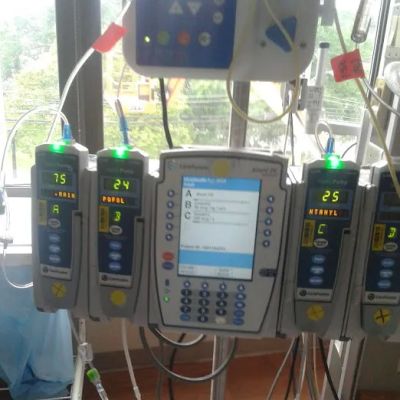Building a Strong Healthcare Team for Your Heart: Key Steps for Optimal Health
When it comes to maintaining heart health, one of the most important steps you can take is building a strong healthcare team. Your heart is the powerhouse of your body, and ensuring it is well cared for requires the expertise of various healthcare professionals. In this article, we will explore how to assemble a comprehensive and supportive team for your cardiovascular health and why it is essential for managing heart disease and maintaining long-term wellness.

1. Why a Healthcare Team is Crucial for Heart Health
Heart disease continues to be a leading cause of death worldwide, making heart health a priority for many individuals. Whether you are already managing a heart condition or simply looking to improve your overall heart health, having a well-rounded healthcare team is essential. A strong healthcare team provides you with the support, expertise, and resources needed to prevent, manage, or treat heart disease effectively.
Your heart health team should consist of a variety of professionals who can address different aspects of your condition and help you make informed decisions. These may include specialists such as cardiologists, dietitians, and physical therapists, along with primary care physicians who oversee your overall health. Having a diverse and well-coordinated team ensures that all areas of your heart health are covered, providing the best possible outcome.
Capital Health Medical Center – Hopewell
capital health medical center hopewell
1 Capital Way, Pennington, NJ 08534, USA

2. Key Members of Your Heart Healthcare Team
Building a healthcare team for your heart requires collaboration among various medical professionals. Each team member brings a unique set of skills and expertise to the table. Here are some of the key members to consider:
- Primary Care Physician: Your primary care physician (PCP) plays a central role in monitoring your overall health and detecting early signs of cardiovascular issues. They are your first point of contact for regular check-ups and can refer you to specialists when needed.
- Cardiologist: A cardiologist is a heart specialist who is essential if you have been diagnosed with a heart condition or are at high risk. Cardiologists specialize in diagnosing, treating, and preventing heart disease. They can guide you through the management of chronic conditions like hypertension or heart failure and help you prevent future issues.
- Dietitian: A registered dietitian can help you develop a heart-healthy eating plan tailored to your specific needs. A balanced diet is vital in managing cholesterol levels, blood pressure, and weight, all of which are crucial for heart health.
- Physical Therapist: Exercise is key to improving heart health, and a physical therapist can design a personalized fitness plan that aligns with your abilities and goals. They can also help you recover from surgery or heart-related procedures.
- Nurse or Health Coach: Nurses or health coaches can provide ongoing education and support, ensuring that you follow your treatment plan and understand the steps necessary to maintain a healthy heart.
- Pharmacist: If you're on medications for heart health, a pharmacist ensures that your prescriptions are filled correctly and can advise on possible interactions or side effects. They are also valuable for discussing medication adherence and offering tips for managing your medications.
3. How to Choose the Right Professionals for Your Team
Choosing the right healthcare professionals is a critical step in building your heart health team. Here are some factors to consider when selecting providers:
- Experience and Credentials: Ensure that each member of your team has the necessary qualifications and experience. Look for cardiologists with experience in treating your specific heart condition and dietitians with expertise in heart-healthy nutrition.
- Compatibility and Communication: You should feel comfortable discussing your health concerns with each member of your team. It's important to choose healthcare providers who listen to your concerns, answer your questions, and collaborate effectively with other team members.
- Referrals and Recommendations: Don't hesitate to ask for recommendations from your PCP or other trusted healthcare professionals. Additionally, seeking referrals from friends, family, or online reviews can help you find reliable professionals.
- Insurance and Affordability: Make sure that your healthcare providers are covered under your insurance plan to avoid unexpected medical costs. Check for network providers or inquire about payment plans if you're concerned about affordability.
4. Building a Collaborative Approach to Heart Health
Once you have assembled your healthcare team, it’s essential to foster collaboration among all members. Regular communication between your doctors, specialists, and therapists ensures that everyone is on the same page and that your treatment plan is well-coordinated.
For example, your cardiologist might work with your dietitian to adjust your eating plan to complement your treatment plan. Similarly, your physical therapist might work with your physician to ensure that your exercise regimen is safe and beneficial for your heart health. By maintaining open communication and regularly scheduled check-ins, you can ensure that all aspects of your heart health are being addressed.
5. The Role of Preventive Care in Heart Health
Prevention is always better than cure, and this is especially true for heart health. A strong healthcare team can help you stay on track with preventive measures such as:
- Regular check-ups: Regular visits to your PCP and cardiologist help detect potential issues early, even before symptoms arise.
- Health screenings: Screenings for high cholesterol, blood pressure, and blood sugar are essential for detecting risk factors for heart disease.
- Lifestyle modifications: A well-rounded team will guide you in making lifestyle changes like adopting a heart-healthy diet, quitting smoking, and managing stress, which are all essential for preventing heart disease.
6. Real-Life Success Stories: How a Strong Healthcare Team Made a Difference
One inspiring case is the story of James, a 52-year-old man diagnosed with high blood pressure and high cholesterol. After working with his healthcare team, including his cardiologist, dietitian, and physical therapist, James was able to lower his blood pressure and cholesterol levels through a combination of medication, dietary changes, and regular exercise. His healthcare team collaborated closely, sharing information and adjusting his treatment plan to fit his evolving needs. James now feels healthier and more confident in his ability to manage his heart health.
Such success stories highlight the importance of a collaborative approach to heart health. When your healthcare providers work together and you take an active role in your treatment, it’s possible to achieve lasting improvements in your health.
7. Conclusion: Empowering Yourself with the Right Heart Healthcare Team
Building a strong healthcare team for your heart is one of the most important steps you can take for your long-term health. By selecting the right healthcare providers, fostering collaboration, and focusing on prevention, you can improve your heart health and reduce the risk of heart disease. A strong healthcare team is not just about doctors and medications; it’s about creating a supportive network that helps you make the best decisions for your heart health.
For more information on building your heart health team and accessing the right heart care resources, visit HeartCare Hub for expert advice and recommendations on heart health products.






















Deborah Heart and Lung Center
deborah heart and lung center
200 Trenton Rd, Browns Mills, NJ 08015, USA